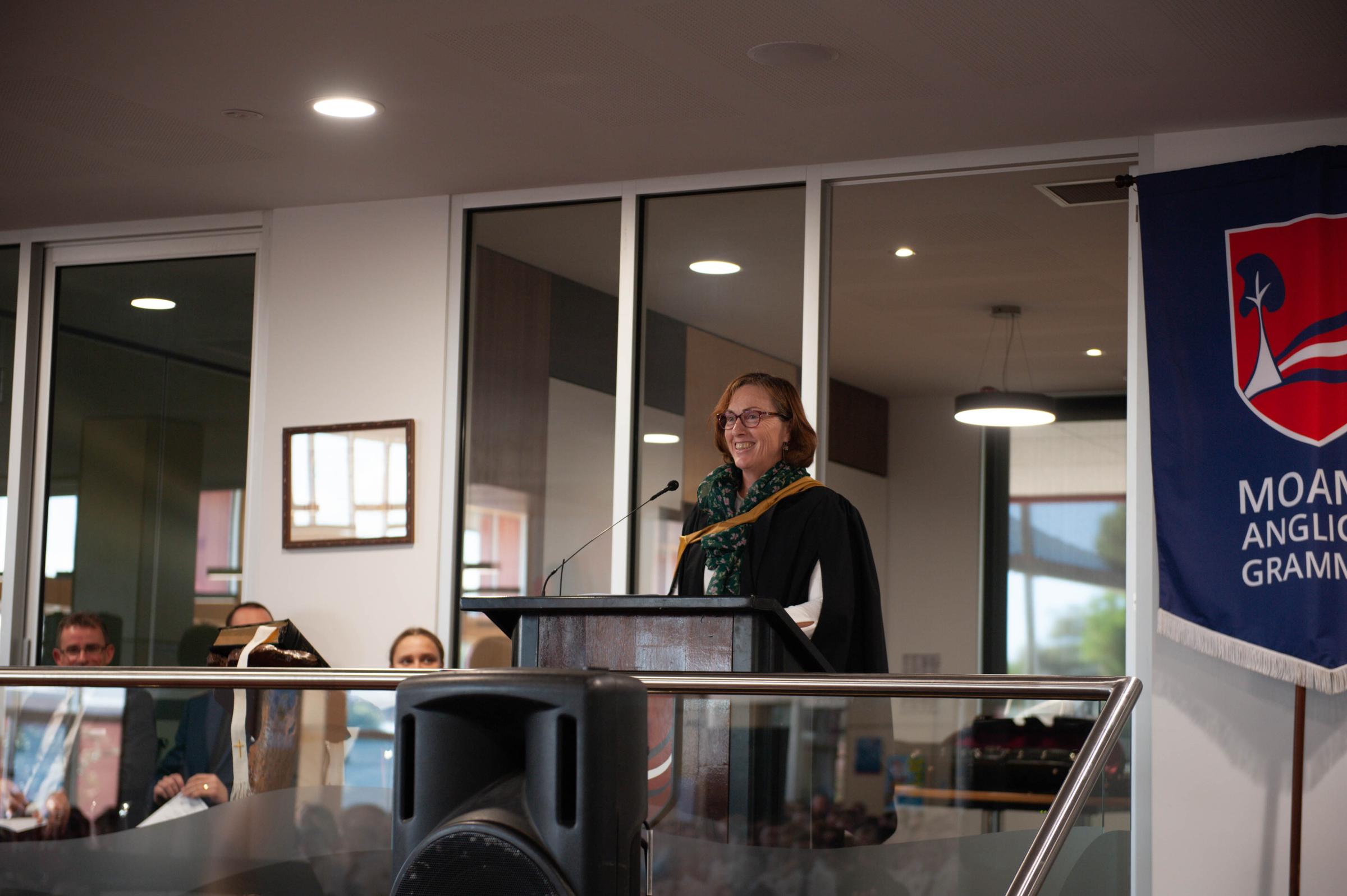From the Principal

NAPLAN
We are again in the middle of NAPLAN (National Assessment Program Literacy and Numeracy) testing of all students in Australia in Years 3, 5, 7 and 9. These tests have traditionally been a paper test but since 2013 ACARA (Australian Curriculum, Assessment and Reporting Authority) has been trialling testing online. Moama Anglican Grammar was involved in 2017 and 2018 as a pilot school with online testing.
This year the tests, other than writing in Year 3, has moved to the online format and I am sure you would be aware from the media that there has been technical problems during this process. As the tests are online, they are no longer all completed on the same three days but are held over a two week time frame.
For us, the testing over the last three days has been relatively smooth, however, we did have difficulties on Tuesday afternoon when two of our Year 9 classes attempted the writing task. The technical difficulties the students experienced during the writing task meant they were unable to complete the task as required. Many schools experienced similar problems.
NESA (NSW Education Standards Authority) has been in contact with schools and are monitoring the testing process. The students who experienced difficulties on Tuesday will be allowed to complete the task at another time.
The results from the NAPLAN are used by schools as a part of the data we collect to inform teaching and learning as well as information for students and parents to track individual progress and development of skills in literacy and numeracy. When we have data from the 2019 test (results are normally available in August), we will compare the data against previous years as well as other performance information we have about students’ skills.
If parents have questions about the tests, please feel free to contact Michael Weier in Secondary and Mel Scott in Primary.
Risk-Taking
At the centre of our Moama Anglican Grammar vision is the concept of supporting families to work with students in a positive and constructive way to achieve their personal best. From K-12 we talk to students about ways they can challenge themselves, move out of their comfort zone and learn through new experiences, this is risk taking.
We encourage students to try new things; to become involved in sport, music, drama, art, community service programs, camps as well as trying new ways to learn in their academic subjects. This is all a part of positive risk taking. Positive risk taking involves people challenging themselves and trying something new or different that has a positive consequence for those involved. It develops personal attributes of courage, a sense of achievement, develops independence and builds confidence even though it can also create anxiety.
Many young people also engage in negative risk-taking behaviour as adolescents. This can be motivated by the desire to belong to the group, to be admired by friends or test boundaries. The consequences can include significant damage to a young persons’ physical and mental health.
We address some risk-taking behaviour through the PDHPE curriculum in both primary and secondary school as well as through our pastoral care program. When we become aware that students have engaged in negative risk-taking behaviours our first goal is to support students and families through education. The safety of all our students is important. Our aim when working with students who engage in negative risk-taking behaviour is to focus on changing behaviour and our response is embedded in our student wellbeing programs. There are times, unfortunately, when these negative risk-taking behaviours occur at school and have consequences for other students. As such, we may then have to consider such behaviour not only as a student welfare issue, but from a behaviour management perspective as well.
If parents would like to read more about negative risk-taking behaviour and teens, there are some excellent resources available on the following websites. One of the most important things parents can do is encourage open and honest conversation.
https://parents.au.reachout.com/
Staff Changes
Our Secondary counsellor, Racheal Love has resigned from Moama Anglican Grammar and will finish today. Rachael is leaving to spend more time with her family and complete her studies. She has been a wonderful asset for us and we have all benefited from her experience and expertise as well as her calm and professional manner. Thank you Rachael and good luck.
We welcome Jo Webb back to Moama Anglican Grammar as our Secondary Counsellor three days per week. Jo will work with Stacey Warren.
Thank you.
Mrs. Carmel Spry
Principal
